“The whole society is going someplace else.” – Gary Snyder
Five years ago, the November sun baking my face, I hiked into the Chihuahuan Desert eight miles north of Las Cruces, New Mexico, into all the space and light. Sipping on my half-full Dasani water bottle, I sat on a lichen-covered rock, gazing across a lovely sea of creosote at the violet spires of the Organ Mountains twenty miles distant. The bright hillside behind me was quilted by a layer of prickly-pear cacti, their pads spreading out low to the ground, interspersed with the bent brown branches of Ocotillo.
I first saw a desert expanse like this forty-five years ago. I immediately felt the presence of a new but unknown center, as though my sympathetic nervous system had shifted its orientation. Since then I have sought out Western deserts and mountain ranges and they have always filled me with a strange abiding awe.
I was thirty before I had a conscious understanding of what this was about. Now in my sixties, the story arc of my life over the last four-plus decades has crystallized into a simple if drastic understanding: that humanity is proving itself unqualified to be the dominant species on this planet. The signs of this were emerging when I was a young man, but today you have to be cognitively challenged, joyfully ignorant, or in a state of psychological denial or sociopathic indifference not to at least be impressed by the evidence. Barring a miraculous cultural transformation within the next decade or so, it will be nature’s solemn task to hand us a species-level pink slip.
What we can trust is that the world’s natural systems – its atmosphere, ocean and ecosystems – will do exactly that, taking the necessary steps to restore the planet’s energy balance and aesthetic grandeur. Monkeyshines like geo-engineering could delay the worst consequences of global warming for awhile, only to make room for other environmental consequences to knock our species shitless first.
The terrible aspect of humanity getting the pink slip is that almost none of the many-millions-to-billions of people in future generations who are likely to die will bear any responsibility for having caused the holocaust. Nor of course will any of the numberless species that will go extinct. The privileged, powerful people of the developed world, who do bear the principal responsibility, will be long dead by then.
That day I stayed out in the desert a long time. A full moon rose over the maroon arm of the San Andres Mountains and the desert air chilled my face. Looking at the sunset over a long, barbed wire fence, the earth turned Onyx black underneath the straight, sharp-edged horizon, running north into the black folds of the Dona Ana foothills. An uncertain, flame-like layer of orange light lay on top of the black earth, above which there was a prism of white-gold, pink, and lavender, the latter fringing into creamy blue, beneath the dark blue firmament.
What makes the wildness of the natural world more advanced than our own species, which we can see and feel when we’re out there, is the way its negative feedback loops correct imbalances in the system. Too many deer? Predators. Forest fires? The species have adapted to them: aspen trees often grow in the burnt areas and Lodgepole pines are protected from pine bark beetles by the burned-out spaces.
As long as we humans were hunter-gatherers we lived under the supervision of wild ecosystems, which merrily forced us to live in tandem with them. But ever since the fateful discovery of agriculture, that dread day when the serpent truly coiled around our innards, we have too often been unwilling to limit either our numbers or our consumption of resources. The Industrial Revolution only escalated the process, enabling ruling hierarchies to systematically transform our splendid landscapes into gruesome reflections of their own hubris. The arrival of machines, technology, and fossil fuels has made us not just neglectful of negative feedback loops, but oblivious to them.
Even though Homo sapiens has thus far tanked in its efforts to administer the planet, it has been strikingly successful a number of times at both surviving disasters and learning new paradigms from them. The first occasion we know of was 70,000-75,000 years ago.
According to Spencer Wells, a professor at Cornell University, it happened this way. Sumatra’s Mount Toba erupted, the most massive such eruption within the last two million years, culminating in a “volcanic winter.” Temperatures plummeted 9-27 degrees Fahrenheit, followed by a thousand years of increasing cold. The human population fell from about 85,000 to fewer than 10,000 and possibly as few as 2,000. It must have been a horrifying time. (See Wells’ 2010 book Pandora’s Seed: the Unforeseen Cost of Civilization, pp. 15, 106-107.)
How did humans react to this catastrophe? Let me quote Wells at length in the pages that follow: “The genetic and climatic data both paint a picture of a human population teetering on the brink of extinction. It is likely that the cataclysmic climatic shift created a scenario in which humanity had to adapt or die. And the response of these humans…was to change their culture.” (p. 107).
When you study anthropology and archaeology you realize that the variability of human cultures over time is the great secret of our adaptability and survival. Cultures have the capacity to change their orientation within a generation if pressures from the environment are extreme enough. Genetic change can occur fast too, but not that fast, and not so comprehensibly. The differing ways of life that people today know intimately would likely not exist, or at least not exist in the same variety, if our species had not had to contend with all that atmospheric ash from Mount Toba.
When the volcano erupted the evolutionary pieces were already in place within our species that would make striking changes possible. As Wells says, “Humans, it seems, were probably pre-adapted to develop the material culture of the Upper Paleolithic period [the Late Stone Age, 45,000-10,000 years ago], and all they needed was the impetus – in the form of the intense selective pressure provided by the last ice age and the eruption of Mount Toba – to make use of their ability to solve problems in novel ways…
“A complex modern human trait like the capacity for abstract thought, first recognizable in the fossil record through artistic depictions, could have arisen…through small, incremental steps that eventually led to the right combination for natural selection to act on. This…might explain why we see sporadic evidence of modernity prior to 70,000 years ago, but only see it explode afterward…The extreme climatic changes brought about by the ice age and, in all likelihood, the eruption of Mount Toba would have exerted on the human species selection for innovation and speedy adaptation – such strong selection, in fact, that we developed a new culture…a climatic crisis paved the way for cultural innovation…
“What evolved around 70,000 years ago in the human lineage was the ability to adapt quickly – to innovate – using our culture, as opposed to our biology, as was the case with Neanderthals…” (pp.108, 111, 112.)
But exactly how did we develop the ability to reinvent human cultures? Certainly this didn’t come out of thin air. It involved our discovering the remarkable capacity to picture a different future: imagining that a society can choose to follow altogether different standards of behavior, and that it is possible to effectively communicate such a vision to other people in the form of stories and admonitions. This must have felt like an alternate reality at the time.
As Wells says, “Innovation…involves imagining new ways of solving a problem and then implementing them. The first step involves the sort of imagination that is reflected in the creation of art…and the second requires some way of explaining the innovation to others…This process of trial and error (often using seemingly crazy insights) coupled with better communication became the model for human innovation – the first time such a successful system for problem solving had ever evolved.” (p.112.) Over the following 50,000 years, until the arrival of the Holocene and the “invention” of agriculture, hunter-gatherer societies possessing this revolutionary capability spread across the Earth, successful virtually everywhere they went.
The ability to envision a different cultural paradigm and other unorthodox solutions, however, isn’t a gift everyone has. We can make an educated guess, thanks to the early 20th century psychiatrist C. G. Jung, that about one in four people have that capability to some degree. When we look for an internalized version of the aptitude that is less tied to existing paradigms, the figure drops to one in sixteen. (Jung’s major work on this is Psychological Types. See also Gifts Differing, by Isabel Briggs Meyers.) When in addition we require a gift for communicating such unconventional insights, we can make a crude estimate of about one in forty or fifty.
Such a ratio makes sense when we consider that hunter-gatherers in the Late Stone Age traveled around in bands of about 150 people. (See Wells, p. 119.) In such a group there were likely to be several people with this vital ability, enough to develop it fully and pass it on between generations.
Today people with internalized visionary traits – whom Jung termed introverted intuitives – are often drawn to art and science. And by the late 1960s some of those artists and scientists began picturing an enormously different culture for humanity. As early as the 1920s Jung himself knew a massive shift in Western society was on its way, but it was too early for him to perceive its dimensions.
One of the first who did was Paul Ehrlich. He was a population biologist at Stanford University, who in 1968 published a controversial 180 page paperback, The Population Bomb. Here’s what he said in this book about climate change, which he cannot have written later than 1971, because that’s when the edition I have was revised by him:
“But even more important is the potential for changing the climate of the Earth. All of the junk we dump into the atmosphere, all of the dust, all of the carbon dioxide, have effects on the temperature balance of the Earth. Air pollution affects how much of the sun’s heat reaches the surface of the Earth and how much is radiated back into space…
“…The greenhouse effect is being enhanced now by the greatly increased level of carbon dioxide in the atmosphere. In the last one hundred years our burning of fossil fuels raised the level some 15%. The greenhouse effect today is being countered by low-level clouds generated by contrails, dust, and other contaminants that tend to keep the energy of the sun from warming.
“At the moment we cannot predict what the overall climatic results will be of our using the atmosphere as a garbage dump. We do know that very small changes in either direction in the average temperature of the Earth could be very serious. With a few degrees of cooling, a new ice age might be upon us…With a few degrees of heating, the Greenland and Antarctic ice caps would melt, perhaps raising ocean levels 250 feet. Gondola to the Empire State Building, anyone?
“In short, when we pollute, we tamper with the energy balance of the Earth. The results in terms of global climate and in terms of local weather could be catastrophic. Do we want to keep it up and find out what will happen? What do we gain by playing ‘environmental roulette’?” (pp. 38-39.)
Ehrlich wrote these eerily on-target paragraphs so long ago that scientists didn’t know whether it was global cooling or warming that was heading our way. Yet he appreciated the level of danger with crystal clarity. It’s an example of the intuitive function at its best: that gift for spotting a broad problem pattern well in advance, coupled with a description of an alternative culture that can adapt:
“Somehow we’ve got to change from a growth-oriented, exploitative system to one focused on stability and conservation. Our entire system of orienting to nature must undergo a revolution. And that revolution is going to be extremely difficult to pull off…Unlike people in many other cultures, we see man’s basic role as that of dominating nature, rather than as living in harmony with it…
“So there is considerable reason for believing that extremely fundamental changes in our society are going to be required in order to preserve any semblance of the world we know. Furthermore, those changes are going to have to take place in a framework of certain natural limits…even though we would like to dominate nature, it still dominates us…
“Our big problem for the next century is to bring the population under control, then to reduce its size to a supportable level, while creating an atmosphere in which necessary changes, investigations, and planning can take place.” (pp. 155-157.)
I think a hundred years from now our descendants will read these words with wistful smiles, glad that Ehrlich saw what the hell was going on back in 1968, and that he had a clear if somewhat generalized picture of how our culture needed to change in order to avoid catastrophe. They will also understand that the gifted intuitives of our time were up against well-financed legions of professionals and politicians who adroitly obstructed essential societal changes, right up to the point of no return. Our long-term descendants will likely see such power systems as a cultural aberration, and may well establish traditions that will both sharply discourage their emergence and if necessary shut down any nascent power-fixated organizations before they can gain traction.
Meaning that once the eco-shit hits, the whole society will be going someplace else, changing the culture in the ancient way.
And maybe in a few hundred years, assuming all life forms on our humble planet haven’t been fried, Homo sapiens will be ready to be the dominant species.
Scott Thompson is a regular contributor to the Zephyr. He lives in West Virginia.
To read the PDF version of this article, click HERE
Don’t forget our lifetime backbone members!


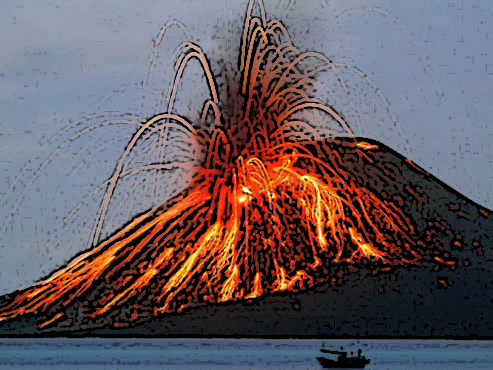

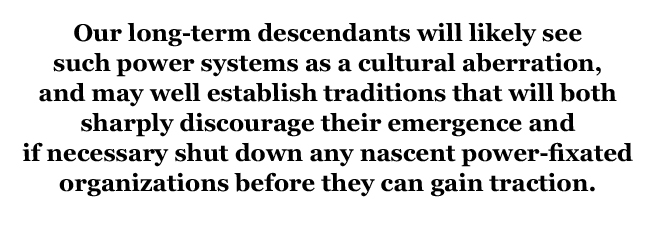
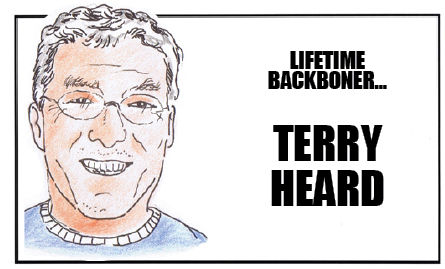
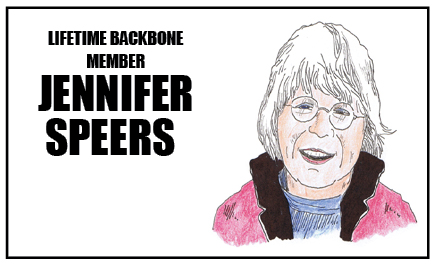
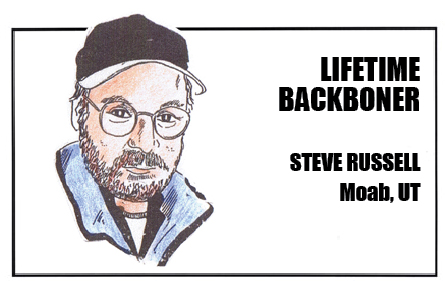
This was a great article. Thank you for the thoughtful research and commentary.
I am seeing signs that there are people who understand that we have to move away from the growth at any cost paradigm.